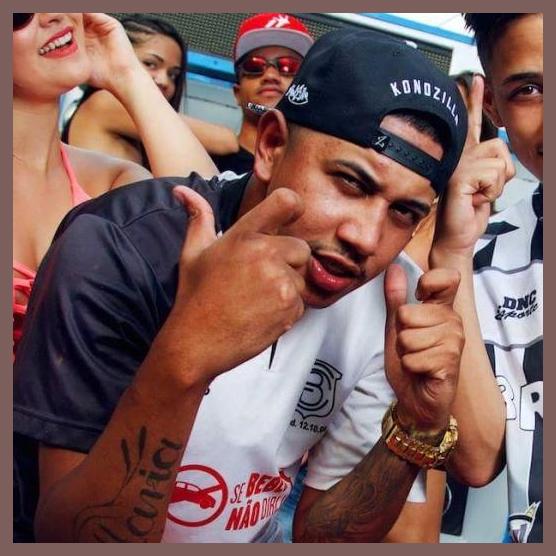 MC PP da VS
MC PP da VS
MC PP da VS: Unveiling the Enigma Behind "Perfume de Bandido"
In the realm of Brazilian funk carioca, MC PP da VS stands as an enigmatic figure, captivating listeners with his distinctive vocals and controversial lyrics. His breakout track, "Perfume de Bandido," has become a cultural phenomenon, propelling him to fame and sparking both intrigue and debate.
Early Life and Musical Journey
Born in Rio de Janeiro's infamous favela complex, Cidade Alta, MC PP da VS grew up amidst poverty and violence. Music became his refuge, and he honed his skills as a rapper and vocalist within the local funk scene. His raw and unvarnished lyrics, often laced with explicit language and tales of crime, quickly resonated with the marginalized youth of the favelas.
"Perfume de Bandido": A Controversial Anthem
In 2019, MC PP da VS released "Perfume de Bandido," a song that would forever change his career. Its provocative lyrics, which celebrate the "outlaw" lifestyle, sparked outrage among some critics and authorities who accused him of glorifying crime. However, the song's infectious beat and the artist's unapologetic delivery struck a chord with fans, who saw it as a reflection of their own struggles and experiences.
Challenges and Controversies
MC PP da VS's outspoken lyrics and public persona have often landed him in hot water. He has faced charges of inciting violence and drug trafficking, and his concerts have been banned in some cities. Despite these controversies, his loyal fanbase remains unwavering, viewing him as a symbol of their resilience and authenticity.
Discography
* Perfume de Bandido (2019)
* Não Me Toca (2020)
* Tiroteio (2021)
* De Frente Para o Crime (2022)
* Só Quem Viveu Sabe (2023)
Members
* MC PP da VS (lead vocalist)
* DJ Will
* MC 2Jhow
* MC Menor MR
Influence and Impact
MC PP da VS has become a cultural icon in Brazil, transcending the boundaries of funk carioca and mainstream music. His controversial lyrics have sparked discussions about social inequality, violence, and the complexities of life in the favelas. Through his music, he continues to give voice to the marginalized and push the limits of artistic expression.
In the realm of Brazilian funk carioca, MC PP da VS stands as an enigmatic figure, captivating listeners with his distinctive vocals and controversial lyrics. His breakout track, "Perfume de Bandido," has become a cultural phenomenon, propelling him to fame and sparking both intrigue and debate.
Early Life and Musical Journey
Born in Rio de Janeiro's infamous favela complex, Cidade Alta, MC PP da VS grew up amidst poverty and violence. Music became his refuge, and he honed his skills as a rapper and vocalist within the local funk scene. His raw and unvarnished lyrics, often laced with explicit language and tales of crime, quickly resonated with the marginalized youth of the favelas.
"Perfume de Bandido": A Controversial Anthem
In 2019, MC PP da VS released "Perfume de Bandido," a song that would forever change his career. Its provocative lyrics, which celebrate the "outlaw" lifestyle, sparked outrage among some critics and authorities who accused him of glorifying crime. However, the song's infectious beat and the artist's unapologetic delivery struck a chord with fans, who saw it as a reflection of their own struggles and experiences.
Challenges and Controversies
MC PP da VS's outspoken lyrics and public persona have often landed him in hot water. He has faced charges of inciting violence and drug trafficking, and his concerts have been banned in some cities. Despite these controversies, his loyal fanbase remains unwavering, viewing him as a symbol of their resilience and authenticity.
Discography
* Perfume de Bandido (2019)
* Não Me Toca (2020)
* Tiroteio (2021)
* De Frente Para o Crime (2022)
* Só Quem Viveu Sabe (2023)
Members
* MC PP da VS (lead vocalist)
* DJ Will
* MC 2Jhow
* MC Menor MR
Influence and Impact
MC PP da VS has become a cultural icon in Brazil, transcending the boundaries of funk carioca and mainstream music. His controversial lyrics have sparked discussions about social inequality, violence, and the complexities of life in the favelas. Through his music, he continues to give voice to the marginalized and push the limits of artistic expression.